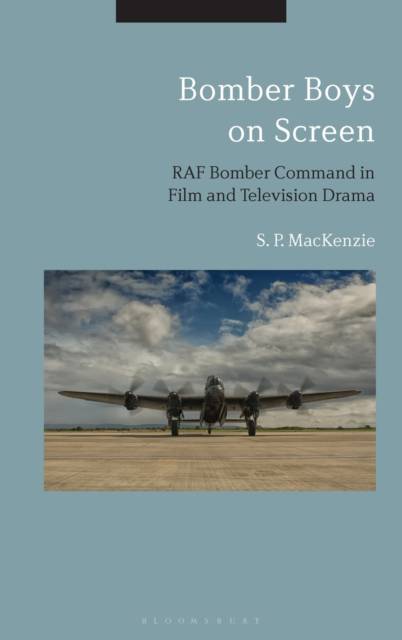
- Retrait gratuit dans votre magasin Club
- 7.000.000 titres dans notre catalogue
- Payer en toute sécurité
- Toujours un magasin près de chez vous
- Retrait gratuit dans votre magasin Club
- 7.000.0000 titres dans notre catalogue
- Payer en toute sécurité
- Toujours un magasin près de chez vous
Bomber Boys on Screen
RAF Bomber Command in Film and Television Drama
S P MacKenzie
Livre relié | Anglais
254,45 €
+ 508 points
Description
Since the Second World War, depictions of Royal Air Force operations in film and television drama have become so numerous that they make up a genre worthy of scholarly attention. In this illuminating study, S. P. MacKenzie explores the different ways in which the men of RAF Bomber Command have been represented in dramatic form on the big and small screen from the war years to the present day. Bomber Boys on Screen is the first in-depth study of how and why the screen-drama image of those who flew, those who directed them, and those who provided support for RAF bomber operations has changed over time, sometimes in contested circumstances.
Until now dramas that focus on Bomber Command have tended to be mentioned only in passing or studied in isolation, despite the prevalence of surveys of both the British war film genre and of aviation cinema. In Bomber Boys on Screen MacKenzie examines the development, presentation, and reception of significant dramas on a decade-by-decade basis. Titles from the beginning of the war (The Lion Has Wings, 1939) to the start of new century (Bomber's Moon, 2014) are situated in the context of technical possibilities and limitations, evolving social and cultural norms in the United Kingdom and elsewhere, and the development of moral and utilitarian controversies surrounding the wartime bomber offensive directed against Nazi Germany. While the focus is on feature films and television plays, reference is also made to documentaries, memorials, veterans' organizations, book titles, war comics, and other representations of the war fought by Bomber Command.
Until now dramas that focus on Bomber Command have tended to be mentioned only in passing or studied in isolation, despite the prevalence of surveys of both the British war film genre and of aviation cinema. In Bomber Boys on Screen MacKenzie examines the development, presentation, and reception of significant dramas on a decade-by-decade basis. Titles from the beginning of the war (The Lion Has Wings, 1939) to the start of new century (Bomber's Moon, 2014) are situated in the context of technical possibilities and limitations, evolving social and cultural norms in the United Kingdom and elsewhere, and the development of moral and utilitarian controversies surrounding the wartime bomber offensive directed against Nazi Germany. While the focus is on feature films and television plays, reference is also made to documentaries, memorials, veterans' organizations, book titles, war comics, and other representations of the war fought by Bomber Command.
Spécifications
Parties prenantes
- Auteur(s) :
- Editeur:
Contenu
- Nombre de pages :
- 216
- Langue:
- Anglais
Caractéristiques
- EAN:
- 9781350024847
- Date de parution :
- 08-08-19
- Format:
- Livre relié
- Format numérique:
- Genaaid
- Dimensions :
- 157 mm x 236 mm
- Poids :
- 498 g

Les avis
Nous publions uniquement les avis qui respectent les conditions requises. Consultez nos conditions pour les avis.






